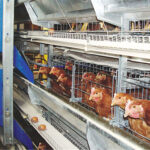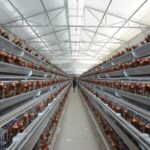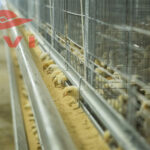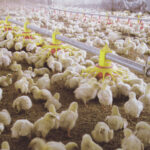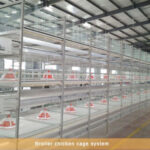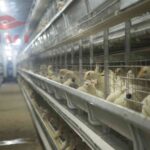Epidemic prevention management of chickens in broiler battery cages
The use of broiler battery cages brings convenience to the farmers and further improves the economic benefits of the farmers. However, when farmers use broiler cages for breeding, they must customize a reasonable and reasonable chicken house epidemic prevention system to better raise chickens, which is also very safe for the health of chickens. So I summed up the necessary chicken house epidemic prevention system, and now I will share it with the farmers.
First, block the introduction and spread of the source:
1. The entrance and exit of the chicken farm, set up a disinfection tank, and maintain effective disinfectant in the pool. Ensure the disinfection of personnel and vehicles.
2. Foreign personnel may not enter the production area without the consent of the person in charge or the veterinary department.
3. No other poultry or poultry products may be brought into the production area.
4. Keepers keep the environment clean and hygienic every day, and do not smash doors between different groups of chickens.
5. The production area should be disinfected once a week, and the work area and surrounding environment should be completely disinfected once every two weeks.

6. Any outsider can enter the production area after being approved. It must be changed and disinfected before entering. It should be exposed to ultraviolet light for 10 minutes, and the work clothes should be accompanied by the technician.
7. Personnel on the premises are not allowed to treat diseases of chickens and other animals.
8. Do not leave the production area at will, wear overalls and rubber boots in the production area, work clothes should be kept clean and disinfected regularly (one week).
Second, strict elimination: farmers should observe the flock every day, grazing every morning to the corner of the chicken house and other remote places to see if there are chickens living alone and poor spirits, and immediately eliminated after discovery. After the technician agrees, the breeder can carry out the harmless treatment of the eliminated chicken, that is, it is buried deeper than 3 km away from the breeding base.
Third, the stress measures of infectious diseases:
1. When a suspected infectious disease occurs in the flock, immediately take quarantine measures and report to the animal husbandry and veterinary department and confirm the diagnosis as soon as possible.
2. When there are cases of severe infectious diseases or suspected strong infectious diseases in or near the scene, immediately block the blockade and report to the animal husbandry and veterinary department.
Fourth, epidemic prevention and health care
1. The technician shall formulate and organize the implementation of the base epidemic prevention plan. The immunization plan shall be subject to the procedures issued by the technician.
2. Conduct publicity and education on veterinary epidemic prevention procedures for employees on the floor.
3. Regularly check whether the drinking water sanitation and feed processing, storage and transportation meet the requirements for sanitation and epidemic prevention.
4. Regularly check the sanitation and disinfection of chicken houses, utensils, isolation houses and chicken farms.
5. The technician’s daily medical treatment has a record of the account. Record diagnostics, prescriptions, immunizations, etc. in detail.
6. Health care work follows the national, provincial and municipal standards for the use of veterinary drugs and related laws and regulations.
7. Cooperate with the detection of epidemic diseases in the animal husbandry and veterinary department, and properly keep all kinds of test reports.
8. Strengthen the management of medical devices, first use them after disinfection. Medical equipment and equipment are kept by custodians, and if they are defective, they can be replenished or repaired within one week to ensure that they are ready for use.
